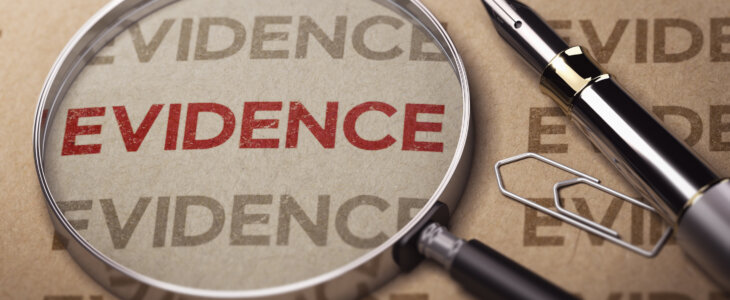Evidence plays a crucial role in domestic violence cases, as it can significantly influence the outcome of the case. Understanding the types of evidence used against those accused is vital for mounting an effective defense.
Skilled legal representation is essential to challenge this evidence’s validity, relevance, or reliability. A knowledgeable attorney can identify weaknesses in the prosecution’s case and ensure that your rights are protected throughout the legal process.
The Role of Physical Evidence in Domestic Violence Cases
Physical evidence in domestic violence cases includes tangible items that can support or refute the allegations made. This type of evidence is often used to establish the occurrence of violence or altercations. Common examples include:
- Injuries: Bruises, cuts, scratches, or physical harm documented through photographs or medical examinations.
- Damaged Property: Broken furniture, shattered glass, or other property damage that indicates a struggle.
- Weapons: Items such as knives, guns, or objects used as weapons during an altercation.
These pieces of evidence can be compelling in court, making it crucial for the accused to have an attorney to scrutinize their collection, preservation, and presentation. A skilled defense can challenge the interpretation of physical evidence, potentially weakening the prosecution’s case. Physical evidence can also be used in a defendant’s favor.
The Importance of Testimonial Evidence
Testimonial evidence involves statements made by individuals about the incident in question. This type of evidence can come from various sources and plays a significant role in domestic violence cases.
- Victim’s Testimony: The alleged victim’s account is often central to the prosecution’s case. They may describe the events leading up to and during the incident, detailing the nature and extent of any threats or violence.
- Witness Testimony: Neighbors, friends, family members, or even passersby who witnessed the incident or its aftermath can provide testimony. They might describe what they saw or heard, such as a struggle, cries for help, or visible injuries.
- Character Witnesses: These witnesses may testify about the behavior and character of both the accused and the alleged victim, potentially providing context or contradicting claims.
Testimonial evidence can be subjective and may vary in reliability. The defense must cross-examine witnesses and challenge inconsistencies or biases in their statements. A strong legal defense can effectively question the credibility and accuracy of this type of evidence, aiming to cast doubt on the prosecution’s narrative.
Documentary Evidence
Documentary evidence consists of written or recorded documents that provide information relevant to the case. This evidence can be crucial in building or challenging a case in domestic violence allegations.
- Police Reports: These documents include officers’ observations, witness statements, and details about the incident. They often form the foundation of the prosecution’s case.
- Medical Records: These records document any injuries sustained by the alleged victim, including descriptions, treatment provided, and the healthcare provider’s assessment.
- Communication Records: Text messages, emails, and social media posts can reveal conversations between the parties, providing context or evidence of threats, harassment, or other behaviors.
Documentary evidence must be carefully examined for accuracy and relevance. An experienced defense attorney can challenge the validity of these documents and seek to exclude any prejudicial or improperly obtained evidence.
Electronic Records
Electronic records in domestic violence cases include digital evidence that can provide crucial insights into the incident. This evidence often involves modern technology and can be highly persuasive in court.
- Audio and Video Recordings: These include surveillance footage, recorded phone calls, or video captured on mobile devices, providing visual or auditory accounts of the events.
- Digital Footprints: Internet searches, GPS data, and other digital activities can establish location, intent, or prior planning.
Electronic evidence must be handled with care to ensure its authenticity and accuracy. A skilled defense attorney can analyze this evidence, challenge its admissibility, and question the context in which it was obtained.
When To Call A Defense Attorney
Facing domestic violence charges can be overwhelming and have serious consequences. A knowledgeable domestic violence attorney is crucial for handling your case successfully and protecting your rights. They can assess the evidence, identify weaknesses in the prosecution’s argument, and develop a robust defense strategy. A savvy defense attorney can effectively challenge unreliable or improperly obtained evidence.
A domestic violence conviction can impact your future, including your personal relationships, employment, and reputation. A skilled attorney can mitigate these consequences by trying to get the case dismissed, negotiating reduced charges, seeking alternative sentencing, or representing you in court. A dedicated advocate is essential to protecting your rights and achieving the best possible outcome.
The Defense You Need Against Domestic Violence Charges
Don’t face domestic violence charges alone. Michael Kawi Law provides solid and effective legal representation to protect your rights and future. Contact us today for a consultation and secure a dedicated defense.

